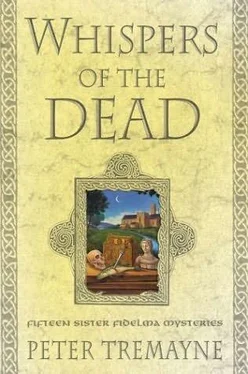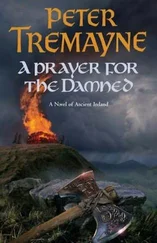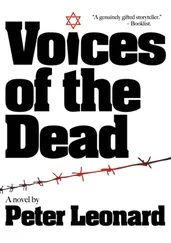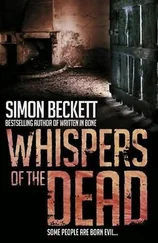Peter Tremayne - Whispers of the Dead
Здесь есть возможность читать онлайн «Peter Tremayne - Whispers of the Dead» весь текст электронной книги совершенно бесплатно (целиком полную версию без сокращений). В некоторых случаях можно слушать аудио, скачать через торрент в формате fb2 и присутствует краткое содержание. Жанр: Исторический детектив, на английском языке. Описание произведения, (предисловие) а так же отзывы посетителей доступны на портале библиотеки ЛибКат.
- Название:Whispers of the Dead
- Автор:
- Жанр:
- Год:неизвестен
- ISBN:нет данных
- Рейтинг книги:4 / 5. Голосов: 1
-
Избранное:Добавить в избранное
- Отзывы:
-
Ваша оценка:
- 80
- 1
- 2
- 3
- 4
- 5
Whispers of the Dead: краткое содержание, описание и аннотация
Предлагаем к чтению аннотацию, описание, краткое содержание или предисловие (зависит от того, что написал сам автор книги «Whispers of the Dead»). Если вы не нашли необходимую информацию о книге — напишите в комментариях, мы постараемся отыскать её.
Whispers of the Dead — читать онлайн бесплатно полную книгу (весь текст) целиком
Ниже представлен текст книги, разбитый по страницам. Система сохранения места последней прочитанной страницы, позволяет с удобством читать онлайн бесплатно книгу «Whispers of the Dead», без необходимости каждый раз заново искать на чём Вы остановились. Поставьте закладку, и сможете в любой момент перейти на страницу, на которой закончили чтение.
Интервал:
Закладка:
“She killed herself.”
Brother Ross groaned piteously.
“When you have eliminated every other explanation as being impossible, that which remains must be the truth,” Fidelma said dryly.
“Am I right, Brother Ross?”
The young man’s shoulders had slumped in resignation.
“She. . she was not of this world. She heard voices. She thought she was being instructed by spirits, from the otherworld. By the Blessed Declan. She had visions. She made me open the tomb so that she could touch the holy relics. I greased the stone so that she could swing it open by herself when she wanted. She often spoke of joining the holy saint. I did not think she meant to kill herself.”
“What happened?” demanded the abbot.
“I brought the pilgrims to the oratory and went inside before them in case there was a worshiper at prayer. I had no wish to disturb anyone. I saw her body lying in the open grave with both hands gripping the knife in her breast. I realized with horror what she had done. There was no time nor place to hide the body from the pilgrims. If I had attempted to swing the tomb shut those outside would have heard me. I forced her hands from their grip on the knife and put them at her sides. I tried to remove the knife but it was buried to the hilt, that was when the spots of blood stained my sleeve and hand. I think I panicked, believing the pilgrims would come in any moment. The only thing I could think of was to pretend the saint’s body was uncorrupted and hope it would distract the pilgrims to run down to the abbey to report the news, giving me time to dispose of the body. I did not count on. .”
He glanced toward Fidelma and shrugged.
“The crime of suicide forbids her being laid in hallowed ground,” pointed out Sister Corb. “The suicide is classed as a fingalach, a kin-slayer; a person no better than a murderer.”
“That is why I tried to protect her so that her soul could journey on to the otherworld in peace,” sobbed the youth. “I loved her that much.”
“There is no need to worry,” Fidelma assured him gently. “Sister Aróc can be buried in consecrated ground.”
Here the abbot began to protest. Fidelma cut him short.
“Sister Aróc, for legal purposes, was classed a mer, one of unsound mind. The law states that the rights of the mentally disturbed should take precedence over other rights. A lenient view is taken of all offenses committed by them.”
“But Brother Ross lied,” pointed out Sister Corb, angry and determined that someone should be punished.
Fidelma countered her anger softly.
“The law also looks kindly on those whose concern it is to protect those unable to protect themselves. Brother Ross may now rest assured that Sister Aróc’s soul can now depart in peace.”
The abbot glanced around hesitantly before heaving a low sigh of acceptance.
“Amen!” he muttered softly. “Amen!”
THE ASTROLOGER WHO PREDICTED HIS OWN MURDER
I can appreciate why the bishop has sent you to defend Abbot Rígán, Sister. However, I think that you will find this is an open and shut case. The abbot is demonstrably guilty of the murder of Brother Eolang.”
Brehon Gormán was a tall, dark man, swarthy of complexion. He sat back regarding Sister Fidelma, seated across the table opposite him, with a look of cynical amusement. He had an arrogance of manner which irritated her. They were using the chamber of Brother Cass, the steward of the Abbey of Fota, who stood nervously to one side.
“As I understood the circumstances, there were no eyewitnesses. How, then, can the abbot be demonstrably guilty?” she asked coldly, with an emphasis on the words he had used.
The sharp-faced Brehon smiled even more broadly. The smile made Fidelma feel a coldness at the nape of her neck. It had all the warmth of a shark about to snap at its prey.
“Our law takes cognizance of the words of a man uttered before his death,” remarked the Brehon in the manner of a teacher explaining something to a backward child.
“I do not follow.”
“The victim named the abbot as his murderer before his death.”
Sister Fidelma was stunned into silence by his calm announcement.
It had been only that morning when the Bishop of Cashel had called her into his chambers and asked her if she, being a dálaigh, an advocate of the courts, would undertake the defense of Abbot Rígán, whose abbey of Fota stood on an island in a nearby lake. The abbot had been accused of killing one of his own brethren. Brehon Gormán was to hear the case and it was known that Gormán was no lover of the religious. The Bishop of Cashel was concerned for the abbot, who was, by all accounts, a man with a reputation for kindliness and largess, whose good works had distinguished him among the brethren. However, the abbot was also known to be a man of strict obedience to the Rule of Rome which brought him into conflict with many of his fellow religious.
The community of the Abbey of Fota was a small exclusive brotherhood of leather workers and a few scholars. They were a self-sufficient community. As protocol requested, Fidelma had introduced herself to the worried looking steward, Brother Cass, who had then introduced her to Brehon Gormán who had ensconced himself in the steward’s chamber. She had asked to be informed of all the facts of the case.
The facts seemed simple, according to the Brehon. Brother Eolang, a member of the community, had been found by the lake under a wooden landing pier. He had evidently been drowned but there was bruising and cuts to his head. The community’s apothecary, Brother Cruinn, had expressed suspicion about the death. Brother Eolang had not been an elderly man. He was in the prime of his life and the bruising seemed to indicate that he had been struck on the forehead and pushed into the lake where he had drowned.
Brother Gormán had been sent for. After some initial inquiries he had placed Abbot Rígán in custody pending a full trial.
For a moment or two Fidelma sat gazing at Brehon Gormán in astonishment.
“My understanding of what I have been told is that Brother Eolang was dead when he was discovered in the lake? Is this not so? But you say he was able to name the abbot as his killer. How was this miracle accomplished?”
“He was certainly dead when his body was found,” agreed the Brehon.
“Then explain this riddle which you have set me.”
“It is quite simple. Brother Eolang told several of his brethren a week ago that he would be murdered on a particular day and that the abbot would be responsible.”
Fidelma found herself in the unusual position of being unable to comment for a moment or so. Then she shook her head in bewilderment, trying to control the growing sarcasm in her tone.
“This is the evidence? He predicted he would be murdered by the abbot?”
Brehon Gormán smiled again, even more coldly.
“Brother Eolang also foretold the exact manner of his death,” he added.
“I think you need to explain more precisely, Brehon Gormán,” Fidelma said. “Was Brother Eolang a prophet?”
“It would appear so, for we have the accusation and prediction written in Brother Eolang’s own hand.”
Sister Fidelma sat back and folded her hands in her lap.
“I am listening attentively to your explanation,” she said quietly.
“Please tell me the facts so that I do not make any assumptions.”
“There was no love lost between Abbot Rígán and Brother Eolang,” replied the Brehon. “There are witnesses to several arguments between them. They arose because the abbot did not agree with some of Brother Eolang’s beliefs and activities. . ”
Fidelma frowned, still feeling lost.
“Activities? What activities?”
Читать дальшеИнтервал:
Закладка:
Похожие книги на «Whispers of the Dead»
Представляем Вашему вниманию похожие книги на «Whispers of the Dead» списком для выбора. Мы отобрали схожую по названию и смыслу литературу в надежде предоставить читателям больше вариантов отыскать новые, интересные, ещё непрочитанные произведения.
Обсуждение, отзывы о книге «Whispers of the Dead» и просто собственные мнения читателей. Оставьте ваши комментарии, напишите, что Вы думаете о произведении, его смысле или главных героях. Укажите что конкретно понравилось, а что нет, и почему Вы так считаете.












